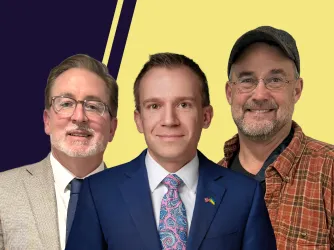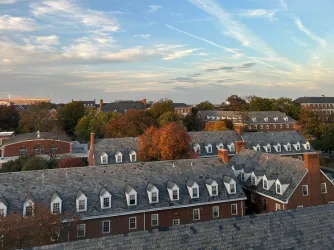Table of Contents
Speech Code of the Month: Adams State University

FIRE announces our Speech Code of the Month for April 2017: Adams State University in Colorado.
According to ASU’s Sexual Harassment Policy, “Sexual harassment is unwelcome conduct of a sexual nature,” including “verbal” conduct. ASU is one of many institutions to employ this unconstitutionally broad definition of sexual harassment, which was set forth as a “blueprint” for schools around the country by the U.S. Departments of Education and Justice in May 2013.
Although the federal government quietly backed away from the “blueprint” language in a November 2013 letter to FIRE, they never communicated this to colleges and universities, which have continued to adopt the language in large numbers. In April 2016, the Department of Justice once again signaled — in a findings letter concluding a Title IX investigation at the University of New Mexico — that universities must violate the First Amendment in order to comply with Title IX. In that letter, DOJ flatly declared that “[u]nwelcome conduct of a sexual nature” — including “verbal conduct” — is sexual harassment “regardless of whether it causes a hostile environment or is quid pro quo.”
This definition, which includes any speech of a sexual nature that another person finds subjectively offensive, prohibits a tremendous amount of constitutionally protected speech and expression. In Davis v. Monroe County Board of Education (1999), the United States Supreme Court defined unprotected discriminatory harassment in the educational setting as conduct “so severe, pervasive, and objectively offensive that it can be said to deprive the victims of access to the educational opportunities or benefits provided by the school.” This definition balances the need to prevent genuinely harassing behavior with the need to protect students’ and faculty members’ right to free speech.
The “any unwelcome conduct of a sexual nature” federal definition, by contrast, leaves students and faculty members vulnerable to punishment for their constitutionally protected expression. Just ask former Louisiana State University professor Teresa Buchanan, who sued LSU for violating her First Amendment rights after she was terminated for alleged sexual harassment under a policy employing the same definition. (FIRE is sponsoring the litigation, which remains ongoing, as part of our Stand Up For Speech Litigation Project.)
ASU and the many other institutions that use this definition may believe that they must do so in order to avoid a potential Title IX enforcement action that puts their federal funding at risk. But to the extent that OCR and DOJ are requiring schools to maintain this definition, they are doing so impermissibly, in defiance of the First Amendment. No federal or state law, let alone regulatory guidance or an individual resolution agreement, can trump the Constitution. Indeed, OCR itself recognized this in 2003, when it wrote to clarify to colleges and universities that they need not maintain unconstitutional speech codes to comply with OCR’s sexual harassment guidance:
OCR interprets its regulations consistent with the requirements of the First Amendment, and all actions taken by OCR must comport with First Amendment principles. No OCR regulation should be interpreted to impinge upon rights protected under the First Amendment to the U.S. Constitution or to require recipients to enact or enforce codes that punish the exercise of such rights. (Emphasis added.)
ASU is a public university, legally bound to uphold its students’ First Amendment rights. Its Sexual Harassment Policy, which is a clear violation of those rights, must be rewritten.
For this reason, Adams State University is our April 2017 Speech Code of the Month. If you believe that your college’s or university’s policy should be a Speech Code of the Month, please email speechcodes@thefire.org with a link to the policy and a brief description of why you think attention should be drawn to this code. If you are a current college student or faculty member interested in free speech, consider joining the FIRE Student Network, a coalition of college faculty members and students dedicated to advancing individual liberties on their campuses.
Recent Articles
Get the latest free speech news and analysis from FIRE.

Free speech in Trump 2.0
Podcast

The Federal Bureau of Investigation (of protected speech)

The paper was her lifeboat — UMD called it interference
